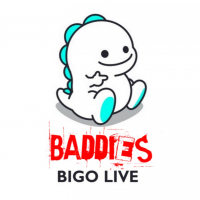How to React to Trolls and Haters
The internet has become a space where everyone can freely express opinions, share creativity, and find an audience with similar interests. However, along with this came a phenomenon familiar to anyone who has ever gone live or posted a video — trolls and haters. Their goal is to unsettle you, provoke negative emotions, and ruin the mood of the stream.
For streamers, bloggers, and creators, the ability to respond to hate correctly is an essential professional skill. One wrong reaction can not only damage your reputation but also drive away your audience. In this article, we will explore who trolls are, why they appear, how to protect yourself and your nerves, and which techniques help maintain calm and control.
Who Are Trolls and Haters
Before fighting negativity, it is important to understand who you are dealing with.
A troll is a user whose goal is to provoke an emotional reaction: irritation, anger, or hurt. They derive pleasure from other people's reactions. What you say does not matter to them — what matters is that you get angry.
A hater is a person who has a persistent negative attitude toward a specific content creator. They may write insults, criticize without reason, or spread false information.
Sometimes the boundaries between them are blurred: a hater can troll, and a troll can become a hater if you actively respond to their provocations.
Why Trolls and Haters Appear
- Anonymity. The internet provides a sense of impunity — you can write anything without showing your face.
- Projection of complexes. People dissatisfied with themselves often project it onto others. When someone is successful, charismatic, or simply confident, they have a desire to “bring them down.”
- Envy and attention. The more popular a streamer becomes, the more people want “visibility.” Even a negative mention gives them a sense of participation.
- Desire for power. By provoking, a troll feels control: they manipulate your reaction.
- Boredom. Sometimes people are just looking for entertainment and choose a toxic way to attract attention.
Understanding these motives helps you take hate more easily: you see that it is rarely personal.
Why It’s Important to Respond Correctly
Every viewer in the chat is observing not only the content but also how you react to stress. If you remain calm, it earns respect and strengthens trust. If you lose your temper, shout, or start arguing — the troll wins, and part of the audience loses sympathy for you.
Responding well to hate is not only protection from negativity but also an element of your image.
Basic Rules for Dealing with Trolls and Haters
1. Don’t Feed the Troll
The golden rule of the internet: ignoring is the most powerful weapon. A troll lives off your reaction. If you don’t respond, they lose interest.
- Do not engage in dialogue with obvious provocateurs.
- Do not try to “convince” them — it is pointless.
- If a message does not violate rules but carries passive negativity, just pass by.
- Silence is worse than punishment for a troll — they don’t get attention.
2. Use Humor and Self-Irony
If you can joke, it disarms the aggressor and wins the audience’s sympathy.
For example:
- — “You play terribly.”
- — “I know, I’m practicing to at least reach the 'acceptable' level.”
The main thing is not to cross into sarcasm or insults. Your tone should be light, confident, and positive.
Humor shows that you control the situation, not the other way around.
3. Filter Chat and Use Moderation
Technical tools are your best shield.
- Appoint moderators. Trusted people who monitor the chat and respond instantly to violations.
- Use word filters. Twitch, YouTube, and Kick allow automatic blocking of messages with insults.
- Enable subscriber-only mode. This reduces the number of random trolls.
- Ban without explanation. No need to argue — the “ban” button solves the problem faster.
- Create chat rules and pin them in the description. This gives grounds for moderator actions and shows viewers that your space is safe.
4. Separate Constructive Criticism from Hate
Not all negativity is harmful. Sometimes under a “sharp” comment hides useful feedback.
The difference is simple:
- Criticism focuses on actions: “Microphone is poorly set,” “Bad lighting.”
- Hate attacks personality: “You are stupid,” “I hate you.”
If the comment can be used for improvement — thank and consider it. If it is just anger — do not take it personally.
5. Control Emotions During the Stream
Haters try to provoke an emotional outburst. To avoid giving them this pleasure, it is important to maintain self-control.
- Pause — take a deep breath before responding.
- Switch to another topic.
- Imagine you are a TV host — you cannot show emotions on air.
- After the stream, release tension: a walk, sports, or meditation helps “reset” your mind.
Remember: your calm is their defeat.
6. Create a Positive Community
The audience reflects the streamer’s energy. If you broadcast friendliness, humor, and respect — toxic viewers simply won’t stay.
- Greet new participants.
- Acknowledge positive subscribers.
- Run interactive activities and encourage politeness.
- Set an example of communication — don’t stoop to haters’ level.
A strong community naturally pushes out negativity.
7. Don’t Be Afraid to Use Bans
Sometimes the best way to protect a stream is strict moderation. Do not feel guilty for a ban.
- If someone came not to communicate but to spoil the atmosphere — their presence disrupts everyone.
- Removing a hater is caring for your audience.
- Temporary time-outs can give them a chance to realize their behavior. But if the person repeats insults — ban permanently.
8. Don’t Respond to Hate with Hate
Every time you “enter a fight,” you give the troll what they want — attention. Moreover, it may backfire: viewers often perceive aggressive reactions as weakness.
Maintain a professional level. Even if you feel “boiling inside,” show calm outwardly.
If negativity affects you, do not display emotions publicly. Better talk to moderators or friends after the stream to vent.
9. Take Care of Your Mental Health
Even experienced streamers admit: constant negativity is exhausting. You should not ignore your condition.
- Take breaks between streams.
- Do not read chat immediately after conflicts — give yourself time to recover.
- Do not dwell on bad comments: for every hater, there are dozens of supporters.
- If you feel burnout or anxiety — talk to a psychologist.
Your emotional stability is the main resource without which creating content is impossible.
10. Use AI Moderation and Filters
Modern technology helps automate protection. Many streamers already connect AI to analyze messages in real time.
AI systems can:
- Detect insults and toxicity by context,
- Filter chat without delays,
- Learn from previous situations,
- Even adapt the filter to your communication style.
This reduces the load on moderators and removes toxic content before it appears on screen.
Mistakes to Avoid
- Public conflicts. Any “drama” spreads instantly online and can spoil your image.
- Sarcasm on the edge. Even an innocent joke can be perceived as aggression.
- Complaints and whining. Constant talk about haters tires the audience.
- Blocking all dissenters. Sometimes a viewer is just expressing an opinion — do not confuse criticism with hate.
When to Intervene Officially
If a hater crosses the line — threatens, spreads lies, posts personal data — do not just ignore it.
- Take screenshots of messages.
- Block the account.
- Contact the platform support (Twitch, YouTube, Kick, etc.).
- If necessary, contact law enforcement.
Cyberbullying is not a “joke” but a real offense.
Conclusion
Trolls and haters have existed, exist, and will continue to exist — it is an inevitable part of internet culture. But your reaction determines the outcome.
Ignore provocations, use humor, protect your chat with moderation tools, and most importantly — do not let negativity affect your mood and creativity.
Remember: behind every toxic comment are dozens of viewers who support you, are inspired, and come to your stream specifically for your energy. Stay calm, respect yourself and your subscribers — and no troll can destroy your success.
Our Services for Streamers
Our Services for Content Creators











